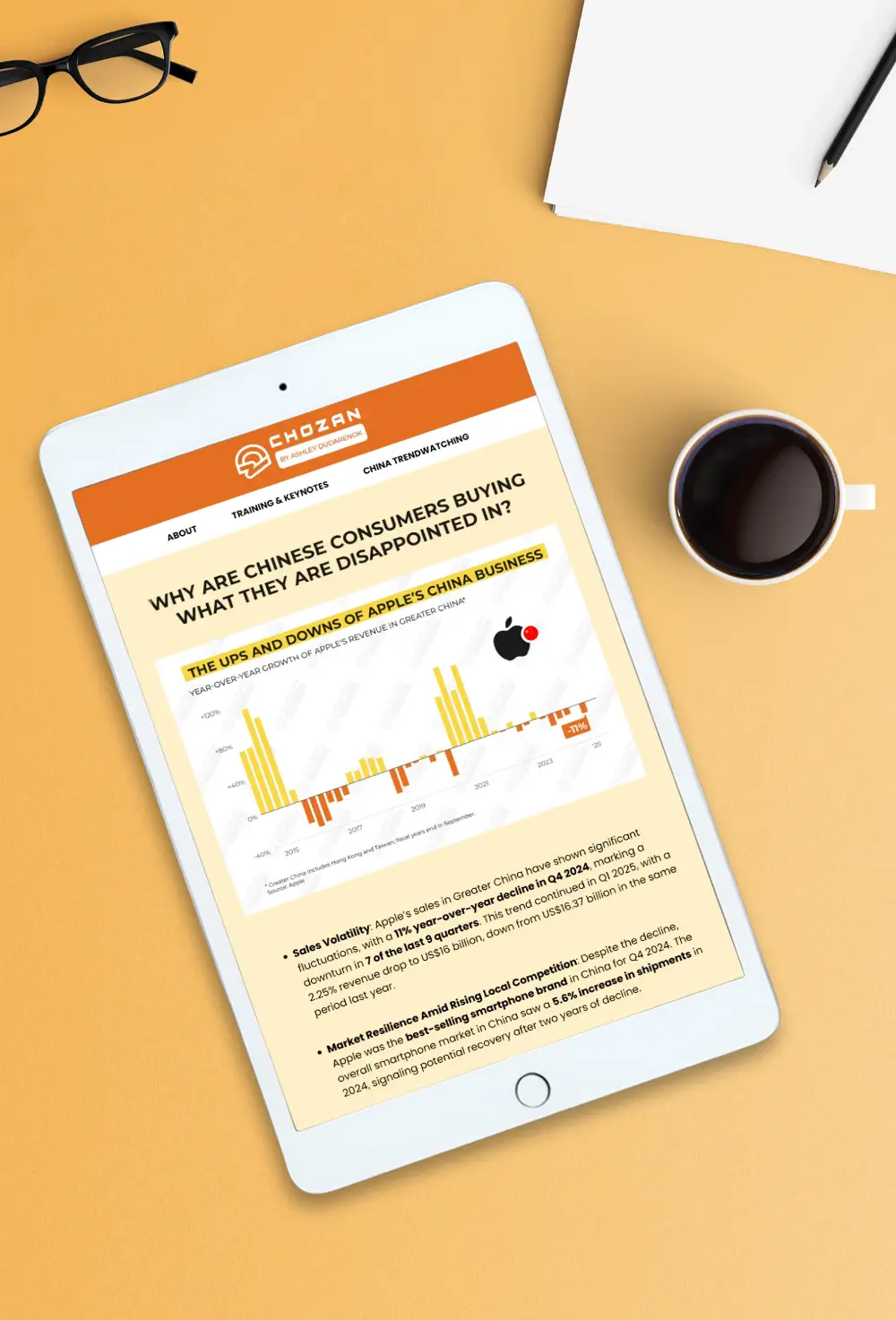CONTENT

By: Ashley Dudarenok
Updated:
If you’re planning to enter the Chinese market, you might wonder, what can you do to maximize the success of your approach.
Christine Tan, the Business Development Manager of FirstShotz, a no risk digital marketing and distribution agency based in Shenzhen, has 5 tips to share on product strategy in China.
As we’ve been told times and times again, entering the China market is not only difficult but, at times, costly. It’s a competitive and highly complex landscape, where marketing can require significant resources.
However, this is one market that cannot be ignored. The country’s numerous consumers are becoming more sophisticated and are experiencing an increasing purchasing power. All these factors make it essential to establish the right product strategy in China.
For items sold on WeChat, a cap of $50 USD is the best.
If the product has already been selling in other markets above this price point, we recommend that you discount it when entering China. This is due to the price sensitivity that consumers have to almost everything except luxury brand products.
However, there are exceptions when a higher pricing strategy can be taken:
Seasons highly impact sales but they’re different in China.
In general, the best times to enter are Chinese New Year, Single’s Day and summer vacation.
If you’re about to launch a product in China, look up the dates for Chinese New Year as it changes every year. Ensure that you don’t launch your product two weeks before the holiday. Most people are travelling from first tier cities to their hometowns where they spend two weeks with family. Post offices and logistics companies close at least ten days before the holiday. So, deliveries just won’t happen.
Instead, products can enter much earlier in the year, but it’s recommended to do so after the holiday when sales pick up.
Summer vacation is when companies see a general increase in sales in addition to higher demand for seasonal products like UV protective products. The third season is Single’s Day (11/11) which sees the highest sales of the year. It’s the Black Friday of China. Consider product launches at this time just because there is a higher success rate.
Your product can be a unique solution to a problem that has never been solved before, have a strong story, or both. Stories sell in China and are excellent tools for marketing materials.
The story can be about your original experiences, your famous business partners or the uniqueness of your product.
For example, Whoosh, a screen-cleaning product, entered the Chinese market and had great success despite thousands of competitors.
Why? The company spent time on branding, creating great marketing materials and the product itself had unique qualities. This won them the innovation award at 2014’s Consumer Electronics Show and partnership with Apple as their only screen-cleaning partner. In China, they’re also a foreign brand. These aspects were selling points and formed key parts of Whoosh’s story.
Other brands have entered with stories about their features alone and how they solve people’s problems, so don’t worry if you don’t have Apple as a partner. Just ensure that your story communicates how your product is different from the rest.
Each country has its own regulations and you don’t want to break them in China. Make sure you understand what you can and cannot sell and import legally.
For example, spray products that have compressed air are considered explosive. There are a variety of regulations that don’t allow certain companies to import them. However, there are solutions available.
If your company can’t do certain things due to regulations, then consider importers because they may have the correct licenses and authorization to help you get your products to the marketplace.
Some products are perfect for the market and ready to go. Others need some slight adjustments to satisfy the needs of Chinese consumers.
For example, clothes that perform well in Western markets must consider size adjustments when entering China. Washing machines need to be smaller because Chinese consumers do laundry more frequently in smaller loads in smaller living spaces.
We all think our own products are perfect but it’s important that we’re careful when entering new markets and consider changes that take into account the market’s needs. Look to your Chinese friends to help you with this one!
If you put these tips into practice, your product’s chances of success when entering the Chinese marketplace soar. Selling in a new international market can be risky and costly but with the help of local talent, success is just over the horizon.
About FirstShotz:
FirstShotz is a no risk digital marketing and distribution agency that helps unique products enter the China marketplace through influencer marketing and ecommerce channels. FirstShotz charges nothing upfront, with all service costs covered by the difference between retail and wholesale price. They deal with everything; marketing, sales, distribution, all the way to customer service.
To get deeper insights into Chinese social media marketing and utilizing it to serve your business, join ChoZan, a training and resources platform for Chinese social media marketers.
Please follow our official WeChat account to get more updates about the latest news, feature updates and case studies.

Share this article on your favourite social media
By subscribing to Ashley Dudarenok’s China Newsletter, you’ll join a global community of professionals who rely on her insights to navigate the complexities of China’s dynamic market.
Don’t miss out—subscribe today and start learning for China and from China!
Ashley Dudarenok is a leading expert on China’s digital economy, a serial entrepreneur, and the author of 11 books on digital China. Recognized by Thinkers50 as a “Guru on fast-evolving trends in China” and named one of the world’s top 30 internet marketers by Global Gurus, Ashley is a trailblazer in helping global businesses navigate and succeed in one of the world’s most dynamic markets.
She is the founder of ChoZan 超赞, a consultancy specializing in China research and digital transformation, and Alarice, a digital marketing agency that helps international brands grow in China. Through research, consulting, and bespoke learning expeditions, Ashley and her team empower the world’s top companies to learn from China’s unparalleled innovation and apply these insights to their global strategies.
A sought-after keynote speaker, Ashley has delivered tailored presentations on customer centricity, the future of retail, and technology-driven transformation for leading brands like Coca-Cola, Disney, and 3M. Her expertise has been featured in major media outlets, including the BBC, Forbes, Bloomberg, and SCMP, making her one of the most recognized voices on China’s digital landscape.
With over 500,000 followers across platforms like LinkedIn and YouTube, Ashley shares daily insights into China’s cutting-edge consumer trends and digital innovation, inspiring professionals worldwide to think bigger, adapt faster, and innovate smarter.
Please check your email and confirm your subscription.

Please check your email and confirm your subscription.

Please check your email and confirm your subscription.